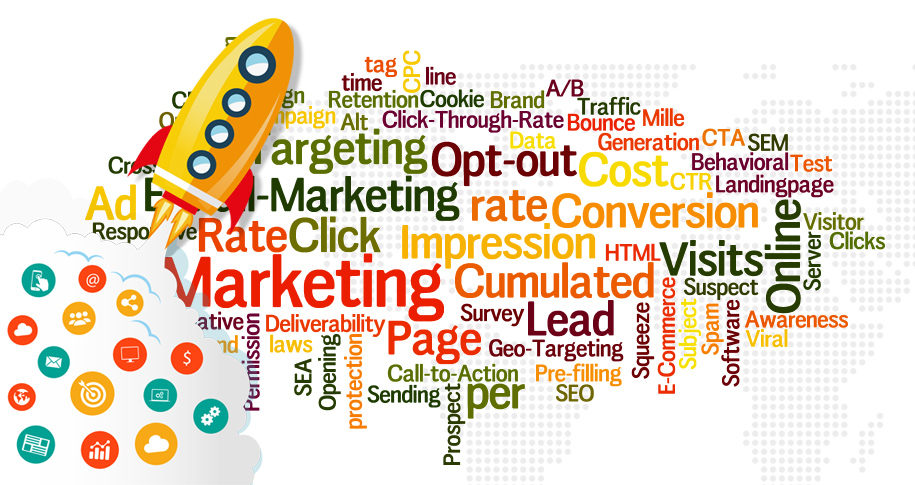What is Social Media MarketingWhat is Social Media Marketing?
Socia... More?
Social media marketingWhat is Social Media Marketing?
Socia... More is the use of social mediaDefinition
Brand awareness is the ext... More platforms and websites to promote a product, service, or brand. By creating engaging content, businesses can connect with their audience, build brand awarenessDefinition
Brand awareness is the ext... More, increase website traffic, and drive sales. Social media marketingWhat is Social Media Marketing?
Socia... More includes activities such as creating and sharing posts, running ads, and interacting with followers.
Social mediaDefinition
Brand awareness is the ext... More platforms like Facebook, Instagram, Twitter, LinkedIn, and TikTok offer businesses an opportunity to reach and engage a diverse audience, from millennials to Gen Z, and even older demographicsWhat Are Demographics?
Demographics r... More.
Why is Social Media MarketingWhat is Social Media Marketing?
Socia... More Important?
- Enhanced Brand AwarenessDefinition
Brand awareness is the ext... More- Social media marketingWhat is Social Media Marketing?
Socia... More is an effective way to reach a large audience and build brand awarenessDefinition
Brand awareness is the ext... More. By posting regularly and engaging with followers, you can introduce your brand to a new group of potential customers. - Example: A clothing brand consistently shares new product launches on Instagram, leading to increased recognition and awareness among their target audienceWhat is Target Audience?
A target aud... More.
- Social media marketingWhat is Social Media Marketing?
- Increased Website Traffic
- Sharing content on social mediaDefinition
Brand awareness is the ext... More with links to your website can drive traffic directly to your site. By encouraging social sharing, your content can reach a wider audience, bringing more visitors and potential customers. - Example: A blog post on your website may gain traction on Twitter, with followers clicking through to read the full article, which in turn boosts your website’s traffic.
- Sharing content on social mediaDefinition
- Improved Customer Engagement
- Social mediaDefinition
Brand awareness is the ext... More allows for direct interaction with customers, enabling businesses to respond to questions, address concerns, and engage in conversations. This fosters a sense of community and strengthens customer relationships. - Example: A restaurant can reply to customer comments on Instagram, engage in conversations, and even resolve complaints quickly, improving customer loyalty.
- Social mediaDefinition
- Cost-Effective AdvertisingDefinition
Brand awareness is the ext... More- Social mediaDefinition
Brand awareness is the ext... More advertisingDefinition
Brand awareness is the ext... More is often more affordable compared to traditional forms of advertisingDefinition
Brand awareness is the ext... More like TV or print. Platforms like Facebook, Instagram, and LinkedIn allow for highly targeted ads, ensuring that your message reaches the right audience at the right time. - Example: A local coffee shop can target ads specifically to users within a certain radius of their location on Facebook, ensuring a more efficient use of their ad budget.
- Social mediaDefinition
How to Implement Social Media MarketingWhat is Social Media Marketing?
Socia... More
- Set Clear Goals
- Before diving into social media marketingWhat is Social Media Marketing?
Socia... More, it’s essential to define your goals. Whether it’s brand awarenessDefinition
Brand awareness is the ext... More, lead generationWhat Is Lead Generation?
Lead generat... More, or increasing sales, having clear objectives helps guide your strategy and measure success. - Example: If your goal is to drive website traffic, focus on creating shareable content with links back to your site.
- Before diving into social media marketingWhat is Social Media Marketing?
- Choose the Right Platforms
- Not all social mediaDefinition
Brand awareness is the ext... More platforms are right for every business. For example, B2B companies may find LinkedIn more effective, while B2C companies may get better results on Instagram or TikTok. - Example: A beauty brand may have more success on visually-driven platforms like Instagram, where users engage with product photos and tutorials.
- Not all social mediaDefinition
- Create Engaging Content
- Content is the backbone of social media marketingWhat is Social Media Marketing?
Socia... More. Create a mix of content types—such as videos, images, blog posts, and polls—that resonate with your audience. Engaging content encourages likes, comments, and shares, which boosts visibility. - Example: A tech company could share product demos and customer testimonials to engage potential customers.
- Content is the backbone of social media marketingWhat is Social Media Marketing?
- Analyze and Optimize
- Regularly track the performance of your social mediaDefinition
Brand awareness is the ext... More campaigns to see what’s working and what isn’t. Tools like Google AnalyticsWhat Is Google Analytics?
Google Anal... More and native platform insights can provide valuable data that helps refine your strategy. - Example: If Instagram posts are performing better than Facebook ads, you can shift more focus and budget toward Instagram to improve results.
- Regularly track the performance of your social mediaDefinition
Conclusion
Social media marketingWhat is Social Media Marketing?
Socia... More is an essential tool for businesses looking to engage with customers, drive traffic, and increase brand awarenessDefinition
Brand awareness is the ext... More. By crafting a solid strategy, setting clear goals, and creating engaging content, businesses can build a loyal social mediaDefinition
Brand awareness is the ext... More following that supports growth and revenue generation.
